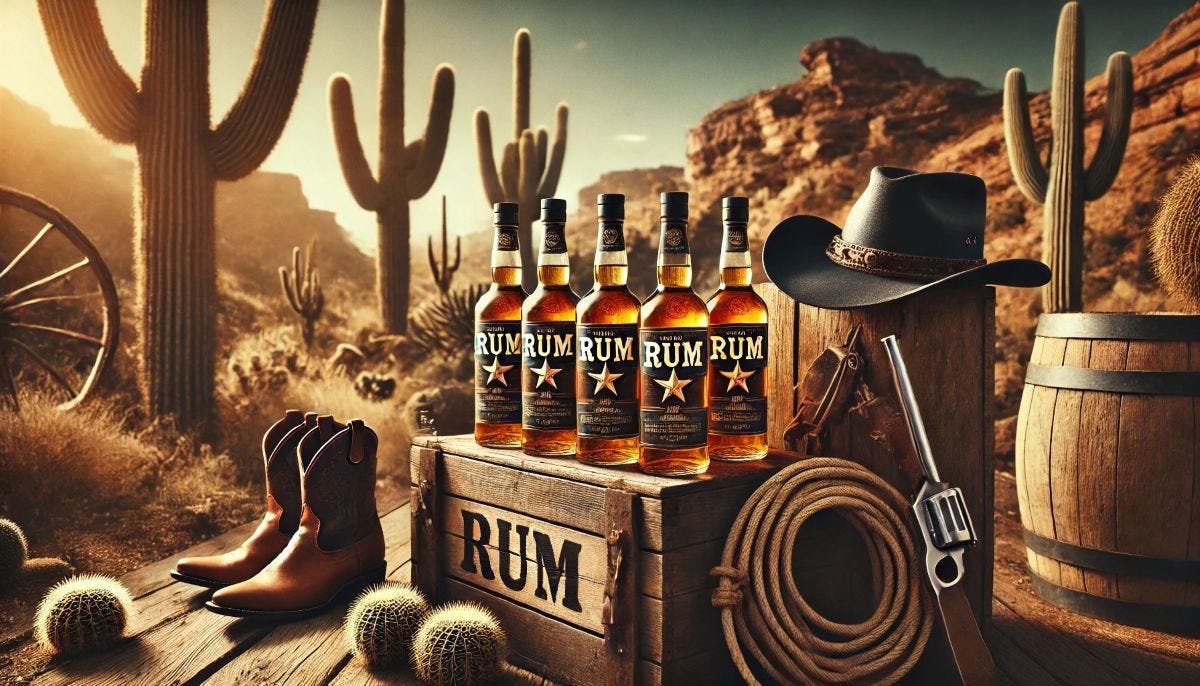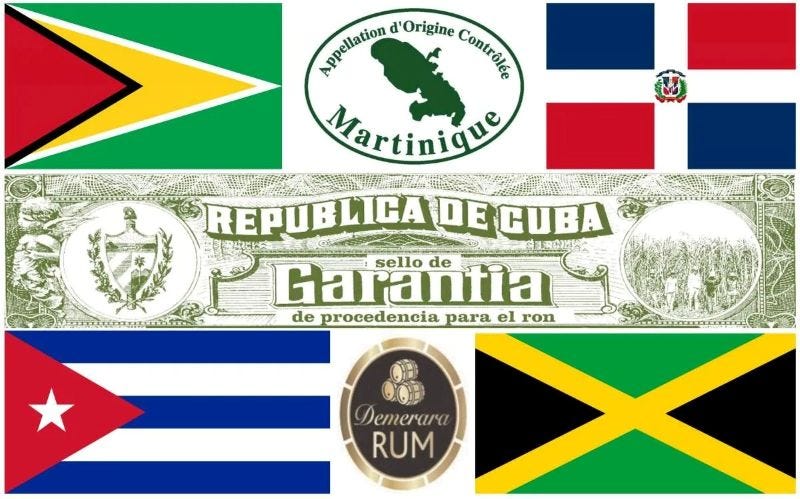Why Is Rum Held to a Higher Global Standard Than Whiskey?
You’ve probably read the headline and wondered, “What’s Matt smoking now?”
Walk with me while I explain…
Earlier today, I came across a Forbes article, The Rum Of The Year, According To The Beverage Testing Institute, by Josef V Micallef. In the article, Micallef interviews Jerald O’Kennard, President of the Chicago-based Beverage Testing Institute. O’Kennard is quoted:
…In the drinks business, the rum category is known as the wild west of spirits… With very few exceptions like the Martinique AOC regulations for Rhum Agricole, there are no global or even local official standards for rum production and especially quality designations, like XO for Cognac, Straight for Bourbon, or Single Malt for Scotch Whisky. Rum producers have national and regional traditions and styles, but that is it.
It angers me to see rum misrepresented and maligned like this. Picture, if you will, the following:
Scene: a symposium of spirits experts and spirits writers.
Moderator: “… and this is why rum’s lack of global regulations hurts its acceptance.”
Voice from the back of the room: “Pardon me, but if rum has no global standards, it suggests there are global standards for other spirits—surely whiskey and brandy must have them. Pray tell, what organization oversees these global official standards?”
[Uncomfortable glances from around the room.]
Moderator: “Well… you see... uh…. Think about Scotch whisky, Irish whiskey, Canadian whisky….”
Voice from the back of the room: “Those are national standards — The United Kingdom oversees the Scotch whisky regulations, and Ireland defines Irish whiskey’s regulations. But what global organization sets the standards and regulations for all whiskey? Is there some United Nations distilled spirits regulations council I’m unaware of?”
Moderator: “Hmm… well… no…. but there’s widespread understanding that whiskey must come from a grain, and many countries recognize Scotch whisky as a distinctive product of Scotland, for example.”
Voice from the back of the room: “It’s also widely understood that rum must come from sugarcane. But beyond that, there don’t seem to be any global regulations for distilled spirits of any type. At best, a collection of countries agree to follow each other’s national regulations.
Why is rum criticized for not having global rules when no other spirit has them either?”
[Pandemonium ensues]
GI Facts
As I’ve written extensively about previously, the most stringent distilled spirit regulations are geographical indications or GI for short. All GIs start as national regulations defined by a single country. When first enacted, a GI’s rules are only enforceable in its home country. Thus, the Scotch whisky GI only had effect in the United Kingdom.
However, a country can request other countries to recognize their GI’s provisions. For example, the UK could ask Peru, “Can you recognize and enforce our regulations regarding what can be called Scotch Whisky?” However, in practice, getting multiple countries to recognize your GI simultaneously makes the most sense. The 27 European Union countries are one such example.
The EU has 42 registered GIs for spirit drinks, including Irish whiskey, Scotch whisky, and Cognac. Thus, France’s Cognac regulations also apply within the 26 other EU countries. A GI that’s not recognized by the EU can’t reasonably claim to be a “global standard” by any stretch.
Among the EU’s 42 registered spirits GIs are:
Demerara Rum (Guyana)
Rum da Madeira
Ron de Guatemala
Rhum de la Martinique (AOC)
Rhum de la Guadeloupe
Rhum de la Réunion
Rhum de la Guyane
Two other rum GIs are in progress for EU recognition:
Ron de Venezuela
Ron de Cuba
Tell me again that, “…there are no global or even local official standards for rum production.”
Indeed, there is EU recognition multiple rum GIs beyond just the Martinique AOC. The GIs of Guyana, Madeira, Guatemala, Spain, and France have the same scope and authority as Scotch whisky, Irish whiskey, and Cognac. In addition, Jamaica, Saint Lucia, and the Dominican Republic also have GIs that the EU does not recognize yet.
O’Kennard also bemoans the lack of “quality designations” like XO, straight, and single malt. He has overlooked such quality designations in the various French GIs and the GIs of Guyana, Cuba, and Guatemala.
As for the lack of recognition by the US of rum’s many geographical indications, that’s a US government problem and not the fault of rum makers worldwide. I addressed that topic here: Can the U.S. Recognize Rum Regulations? - Cocktail Wonk
Summary
There are truly no global standards for any distilled spirit, nor is rum the wild west of distilled spirits. It’s catchy, but wrong. To help debunk this misunderstanding, I wrote a lengthy chapter in Modern Caribbean Rum outlining the GIs and regulations of a dozen Caribbean regions.
I realize that even experts like Mr. O’Kennard may not know that rum makers have upped their game regarding standards and regulations. But by going on record stating demonstrably untrue things, they hinder rum’s acceptance as a premium spirit.






Yeah yeah... the original title said "then", not "than". I realized it within 2 seconds of hitting send. Fixed now. 😊
*Than. Love your work!!